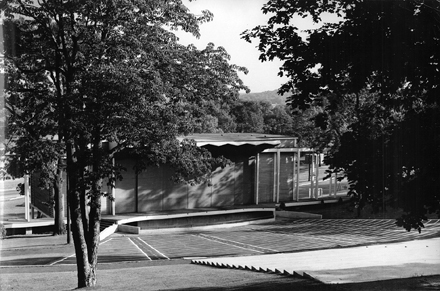1969-1970

Midway through his second year as president of Brandeis, Morris Abram resigned to run for the Democratic nomination to the New York seat in the U.S. Senate. Although his second year had not seen the dramatic crises of his first, neither was it smooth sailing. Earlier in the year Abram, himself a successful attorney, had announced plans for a project that had great personal importance for him: a School of Law. Under other circumstances it would have been a natural for an institution named for Justice Louis Brandeis. But already chafing under the restrictions of a budget freeze and the elimination of teaching positions, members of the university faculty sharply rejected the idea. Abram, who until coming to Brandeis had never held a university position, found this and other administrative frustrations increasingly unbearable, and decided to turn in another direction.
It was not the best of times for the university to find itself in need of leadership. Students demanded a say in the process of finding a new president, but at a convocation held by the members of the Board of Trustees, they showed themselves more inclined toward disruptive protest than constructive discussion. The Board finally turned to Charles Schottland, since 1959 Dean of the Heller School.
—Staff
I entered Brandeis at the fever pitch of the Vietnam War protest era. The shooting of four students at Kent State University in Ohio on May 4, 1970 prompted Brandeis students to vote to shut down classes, and the faculty agreed to let students take their grades as of May 5 of that year. It was an exciting time to join the staff of radio station WBRS (which I did), then located in the basement of Morton May (formerly Mailman) Hall (the Usdan Student Center was under construction that year), and a HAM radio was set up in one of the radio station rooms to enable communication with the other striking colleges (wish we had had the internet then!). Some of the WBRS news staff toured the metro, interviewing people in downtown Waltham and in Boston near Harvard Stadium where a protest rally was being held.
One of the most powerful moments for me during this time was receiving an on-air visit by Mass. Representative H. James Shea, who authored a bill to exempt Massachusetts men from being required to serve in an undeclared war (the bill passed the legislature and was signed into law by Governor Francis Sargent). Just a few days after his appearance on WBRS, Rep. Shea reportedly took his own life.
—Paul Trusten ’73, Biology
 The amphitheater before the fire
The amphitheater before the fire
One of the first new structures built for Brandeis, the Ullman Amphitheater shell was destroyed in a fire early in the spring semester. It had been the site of the world premiere of Leonard Bernstein’s opera Trouble in Tahiti during the first Creative Arts Festival, as well as the 18 Brandeis commencement ceremonies. At the time of the fire, the Amphitheater had housed the university’s film and audio program; many irreplaceable reels of archival footage were lost, including a large collection of oral histories of the university. Some months earlier, Olin-Sang, an academic building, had been damaged by arson, but investigators found that the fire at the Amphitheater had been caused by electrical problems. Although the structure was repaired, it was never really the same; safety concerns compelled its demolition in the summer of 1992.
—Staff